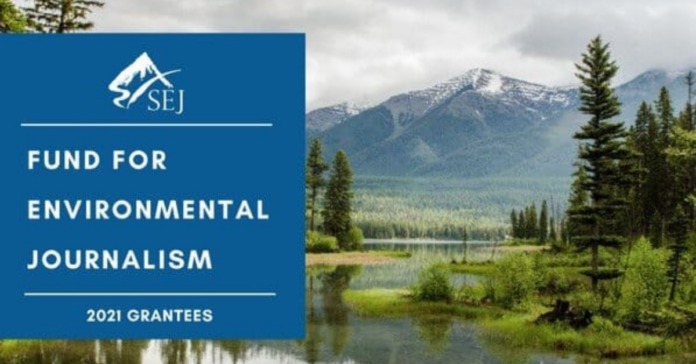With the nation locked down due to the coronavirus outbreak, members of the Society of Environmental Journalists (SEJ) last week compared the dangers of the pandemic with climate change and discussed how to leverage reporting on the public health crisis into advancing environmental policies.
In a webinar entitled, “Covering a Crisis: Climate, Coronavirus, and Global (In)action),” discussion was moderated by Emily Holden, an environmental reporter for The Guardian and featured Katherine Hayhoe, a professor at Texas Tech University and Denis Hayes, a member of the Earth Day Network.
Hayes kicked off the webinar by arguing the $2 trillion economic relief package passed by Congress last month should have been geared toward transforming the industrial and energy sectors.
“But the rest of it is basically to prop up the status quo. You can make a fairly compelling case, I would make it, that if you’re going to be spending that kind of money, going that far into debt, you ought to be doing it in a way that makes a transition into a sustainable future,” Hayes said.
Hayhoe then said the partisan reaction to Coronavirus is similar to the partisan breakdown over climate change and that if people are concerned about keeping family and friends safe from the outbreak, they should care about protecting them from climate change.
“What matters is this: the health, the safety of ourselves, our friends, our families, our loved ones, our community. That is what really matters, that is what is threatened by the pandemic, and that is exactly why we care about climate change, too,” Hayhoe said.
“The difference though is this: with the pandemic, we didn’t act quite fast enough, but acted in time to actually start making difference. But if we wait until climate change is that close to us, the impacts are that widespread and devastating before we take action, it is going to be too late,” she continued.
Hayhoe said “there are lots of lessons to be learned” between the response to Coronavirus and climate change.
Western Wire previously covered criticism that Hayhoe has faced conflicts of interest as a scientific advisor due to a lack of transparency of funding sources for her climate research.
Earlier this year, Western Wire also covered a similar panel discussion held by SEJ where reporters discussed using energy and agriculture regulations to tell negative stories about the Trump Administration in 2020.
After some discussion about the role reporters should play in covering both coronavirus and climate change, Holden asked about the possibility of poor perception from comparing the two events.
“Is there a risk of environmental journalists’ reporting right now looking kind of opportunist and connecting these two crises or writing stories that are completely unrelated to this one? Is there a way to link these without being in bad taste?” she asked the panel.
Hayhoe empathetically replied “Yes” and described how reporters should frame their stories.
“You want to have a strong statement at the top about how bad this is and how much we have to focus on this. And then connect the dots,” Hayhoe said.
“So, we start with what everybody cares about today which is the pandemic and then we connect the dots between an aspect of how we are responding to pandemic. We connect the dots to how climate change is exacerbating these types of risks or how preparedness helps both,” she continued.
Alice Hill, a Senior Fellow for Climate Change Policy at the Council on Foreign Relations drew parallels between the death rate of Coronavirus and climate change, downplaying the lack of lasting impact of the pandemic.
“Commonly people think it [climate change] is like a disease, maybe they even think it’s like a pandemic and it’s going to go away,” Hill said. “Climate change, the changes we’re talking are, in large part, are probably permanent. This pandemic, we could have another pandemic, but the changes are not, they’re permanent in that people will die, they’ll die with climate change. But the changes to our atmosphere are fundamental.”

